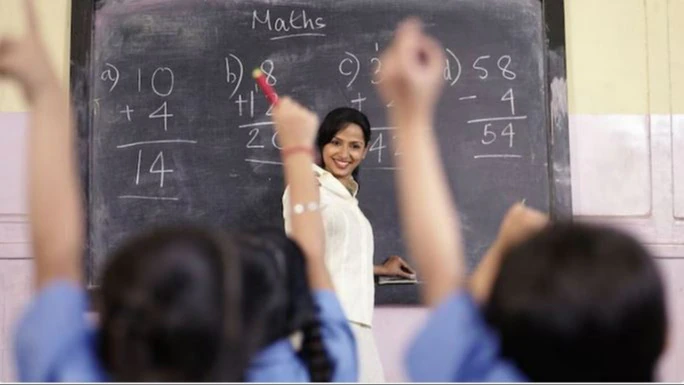Uttar Pradesh, India’s most populous state, is facing a growing educational crisis. For the last six years, there has been no significant recruitment of primary school teachers, and the situation doesn’t seem to be improving anytime soon. Every year, over 4.5 lakh candidates complete their B.Ed. (Bachelor of Education) and D.El.Ed. (Diploma in Elementary Education) programs, only to find no teaching vacancies available in government schools. This has led to widespread frustration, unemployment, and uncertainty among aspiring educators.
Why Has Teacher Recruitment Stopped in UP?
1. Fulfilled Vacancies from Previous Drives
Over the past decade, UP conducted massive teacher recruitment drives, including:
- 2017-2019: Over 1.5 lakh teachers were hired under the UP Assistant Teacher Recruitment.
- 2020-2021: Around 69,000 vacancies were filled for primary and upper primary schools.
Since most sanctioned positions have been filled, the government has not announced new vacancies.
2. No New Sanctioned Posts
The UP government has not created new teaching positions in recent years due to:
- Budget constraints – Allocating funds for new hires is challenging.
- Declining student-teacher ratio – Many schools have sufficient staff as per the Right to Education (RTE) norms.
3. Focus on Non-Teaching Staff and Infrastructure
Instead of hiring teachers, the government is prioritizing:
- School infrastructure development (smart classrooms, toilets, etc.)
- Administrative staff recruitment (clerks, principals, etc.)
Impact of No Teacher Recruitment
1. Rising Unemployment Among B.Ed/D.El.Ed Graduates
With 4.5 lakh new B.Ed/D.El.Ed graduates every year and no new jobs, the competition is fierce. Many candidates are forced to:
- Apply in other states (Bihar, MP, Rajasthan)
- Take up low-paying private school jobs
- Switch careers entirely
2. Quality of Education May Suffer
- Overburdened teachers – Existing staff handle multiple classes, reducing teaching efficiency.
- Lack of fresh talent – New teaching methods and technologies are not being introduced.
3. Increased Coaching Institute Dependence
With no government jobs, candidates are turning to:
- Coaching centers for competitive exams (CTET, UPTET, Super TET)
- Private tuition as an alternative income source
The Growing Pool of Qualified Candidates
Every year, approximately 4.5 lakh candidates complete teacher training programs such as Bachelor of Education (B.Ed) and Diploma in Elementary Education (D.El.Ed). These graduates are eligible for teaching positions in government schools, provided they also clear UPTET or CTET.
- Training institutes: Over 2,000 across the state.
- Annual output: 4.5 lakh trained candidates.
- Eligibility criteria: Graduation + B.Ed/D.El.Ed + UPTET/CTET qualification.
Despite meeting all qualifications, these candidates face a bleak job market due to the recruitment freeze.
📉 Impact on Aspirants and Education Quality
The lack of recruitment has led to widespread frustration among aspiring teachers and has also affected the quality of education in government schools.
For Aspirants:
- Unemployment: Thousands remain jobless despite being qualified.
- Migration: Many move to other states or switch careers.
- Mental stress: Uncertainty and repeated delays in recruitment notifications.
For Schools:
- Teacher-student ratio: Worsening in rural and semi-urban areas.
- Learning outcomes: Decline in student performance due to understaffed classrooms.
- Overburdened staff: Existing teachers handle multiple classes and administrative duties.
Rising Student-Teacher Ratio in Government Schools
While trained teachers remain jobless, government schools in Uttar Pradesh are suffering due to a shortage of teachers. The Right to Education (RTE) Act recommends a student-teacher ratio of 30:1 in primary schools, but in many UP schools, this number is much higher.
This imbalance leads to:
- Poor quality of education
- Overburdened teachers
- Drop in student engagement and performance
- Closure or merger of schools due to lack of staff
Ironically, the state has both a surplus of trained teachers and a shortage of active teaching staff, but administrative bottlenecks prevent a solution.
📢 Demands and Protests by Aspiring Teachers
In recent years, student organizations and teaching associations have conducted several protests, demanding:
- Immediate recruitment drives to fill vacant posts
- Transparent and timely examination processes
- Regular release of UPTET results and certificates
- Increase in teacher retirement age or lateral hiring policies
Despite these efforts, the government’s response has been lukewarm. Many accuse the administration of ignoring the education sector, focusing instead on digital schemes and political priorities.
Reasons Behind the Recruitment Freeze
For the past six years, teacher recruitment in Uttar Pradesh has remained frozen despite a growing pool of qualified candidates. Each year, around 4.5 lakh graduates complete their B.Ed or D.El.Ed programs, hoping to secure positions in government schools. However, due to administrative delays, budget constraints, and systemic inefficiencies, no significant hiring has occurred, leaving thousands unemployed and disillusioned.
The situation is further complicated by political indecision, rural posting challenges, and an overwhelming oversupply of candidates. While minor contractual opportunities like ECCE educator posts have emerged, they fail to address the widespread demand for permanent teacher appointments. Until a transparent and timely recruitment framework is implemented, both aspirants and schools continue to face mounting pressure.
Conclusion: Time for Action, Not Promises
It’s high time the Uttar Pradesh government takes concrete steps to revive teacher recruitment. With lakhs of qualified youth ready to serve, and thousands of schools in need of capable teachers, the solution is straightforward—restart the hiring process and strengthen the education system.
Ignoring this issue not only wastes talent but also compromises the future of millions of schoolchildren who deserve better teachers and better classrooms. As the slogan goes: “No education without teachers.” The government must act—before the crisis becomes irreversible.
